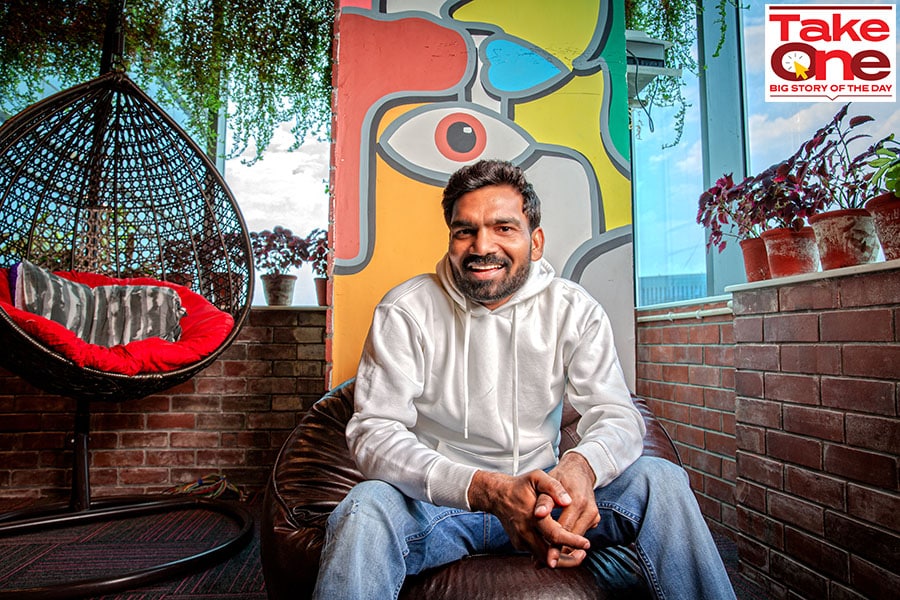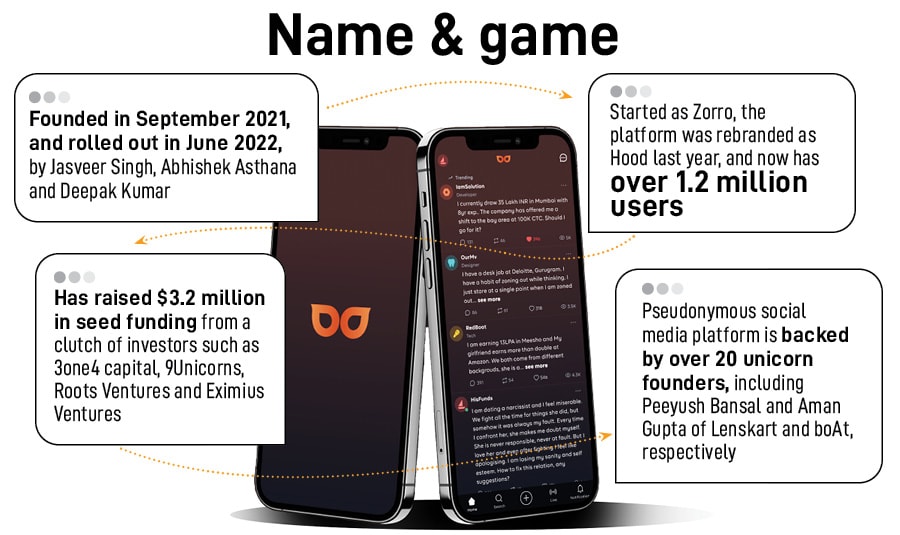
Questions, Answers & Under the Hood: Can Jasveer Singh make it big?
For over a decade, a serial entrepreneur from a nondescript village in Uttar Pradesh has been relentless in his pursuit of success, and his tussle against 'bad timing.' As his pseudonymous social media platform starts to monetise, will Hood turn out to be Jasveer Singh's redemption?
 Jasveer Singh, co-founder and CEO, Hood. Image: Madhu Kapparath
Jasveer Singh, co-founder and CEO, Hood. Image: Madhu Kapparath
Delhi, October 2015. “It was crazy,” recalls Jasveer Singh, who got hooked on Richard Branson’s autobiography Losing My Virginity during his college days in Agra, Uttar Pradesh (UP). Though Singh idolised the maverick British founder and wanted to emulate his ‘crazy’ list of achievements, in 2015—six years after his graduation—the serial entrepreneur was grappling with a flurry of events unfolding at a furious pace. “It was indeed crazy,” reiterates the unassuming founder who was born in Agaunapur village in the Etah district of UP. “I got to learn the English alphabet when I was in class VI,” he recalls.
While a strong footing in mathematics and physics helped him excel till class 12, he lost his chaste Hindi ‘virginity’ when he was forced to learn English in the first year of college. “My seniors advised me to read novels, and my first book happened to be Branson’s bestseller,” he says. The young man from the hinterland was moved by the business exploits of Branson. “If he could do it, so can I,” he said to himself, and decided to become an entrepreneur. “A villager nursing big dreams was crazy,” he says.
Meanwhile, in October 2015, there were a couple of things that Singh found to be crazy. First was the brisk pace of his venture. Qik Stay, an online aggregator of affordable premium hotels which had a few pivots since January 2013 and got rebranded as Qik Stay in July 2015, had galloped at a lightning speed. With over 30 hotels in the kitty and operations spanning Delhi, Gurugram, Ghaziabad, Ludhiana, Chandigarh, Kanpur and Lucknow, the platform raised $250K in seed round of funding from venture capital firm ID Enablers in October 2015.
Qik stayed true to its name and kept cruising over the next few months. In January 2016, it ramped up its reach to 200 hotels, 3,000 rooms and a presence across 50 cities. The target for the next twelve months was ambitious: 800 hotels and 50 more cities. “The pace was absolutely crazy,” Singh recounts.
During the same time, there was something else happening at a crazy pace. In August 2015, rival Oyo raised $100 million from Softbank. A year later in August 2016, the budget hotel aggregator reportedly grabbed another $90 million. The same year, MakeMyTrip and Ibibo announced their merger deal, which changed the dynamics of the hospitality industry. Fast forward twelve months, Oyo went miles ahead of competitors by bagging $250 million in a round led by SoftBank Vision Fund. The two big boys—MakeMyTrip and Oyo—consolidated their lead and position, investors shied away from placing bets on smaller rivals in the fray, and the room for fringe players got increasingly constricted.










